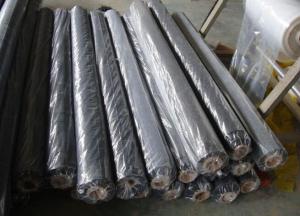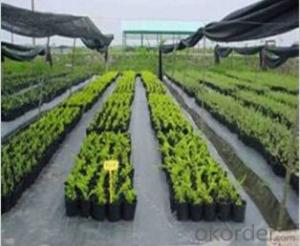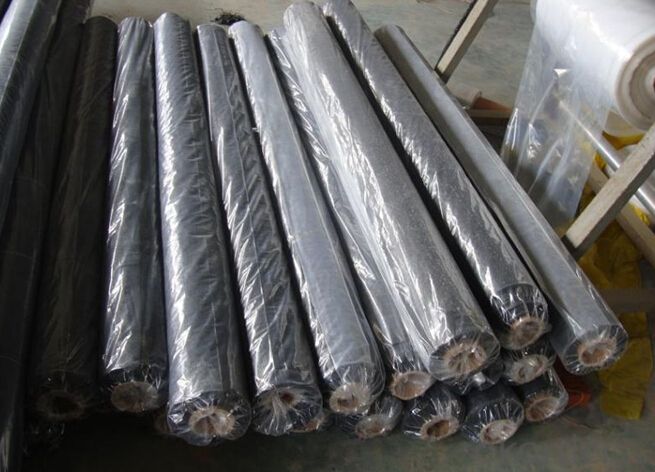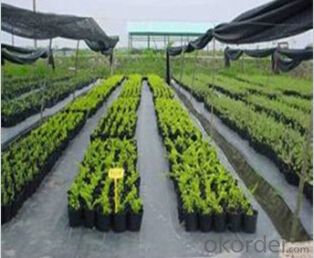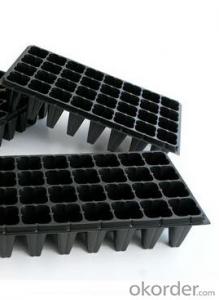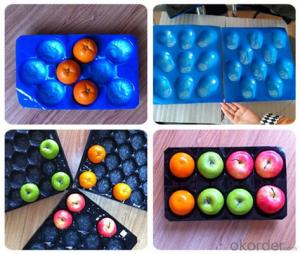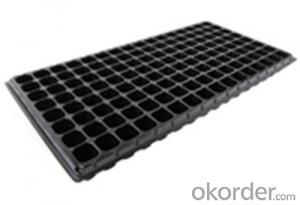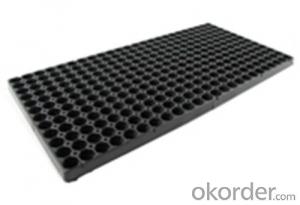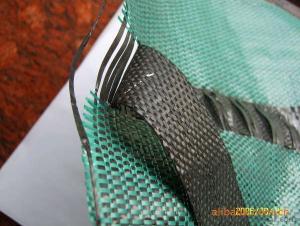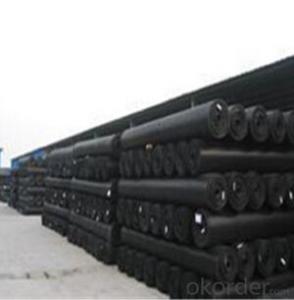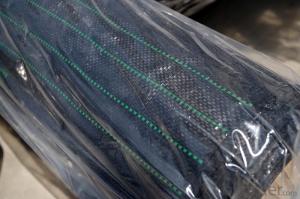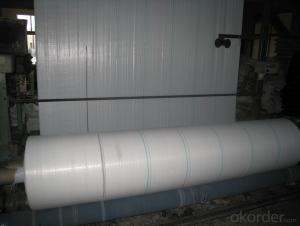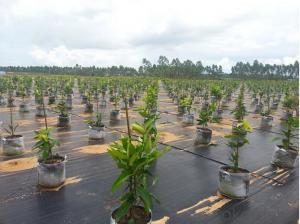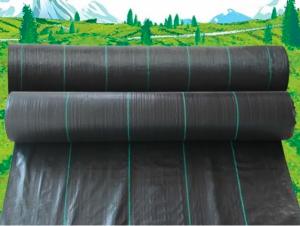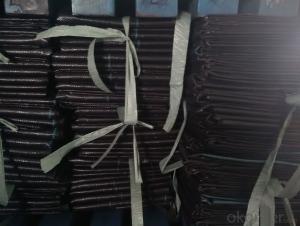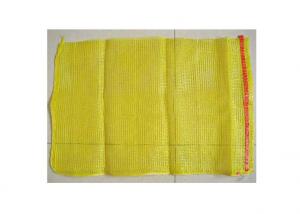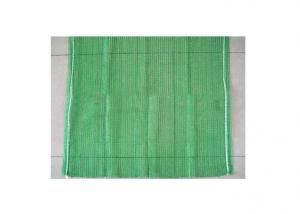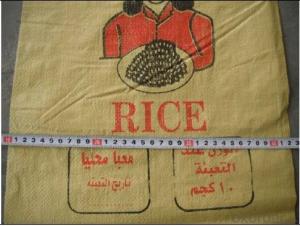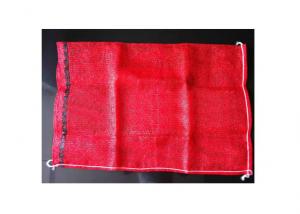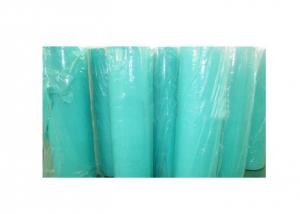PP woven fabric for weed control and water savings
- Loading Port:
- China Main Port
- Payment Terms:
- TT OR LC
- Min Order Qty:
- -
- Supply Capability:
- -
OKorder Service Pledge
OKorder Financial Service
You Might Also Like
Name: PP woven fabric for weed control and water savings
Feature:
Material: PP, virgin material or recycled material
Unit weight: 140g, 175g, 180g, 200g, 230g, 260g, 300g, 350g, 420g, 480g, 670g
Width: 50cm-600cm
Length: As per ur request
Color: Black with green/white grid
Tearing strength: From 0.5 to 2.2kN
Mesh: 10*10, 12*12, 14*14
UV stabilized: Up to your request
Function:
1. Cover crops in the ground surface
2. Can prevent weeds
3. Controlling soil humidity and the temperature
4. Against the insect
5. Does not affect the growth of the crops
6. Long service life
- Q: What is the best ground cover for attracting birds and providing nesting habitat?
- One of the best ground covers for attracting birds and providing nesting habitat is the native grass called prairie dropseed (Sporobolus heterolepis). It forms dense clumps that provide excellent cover for birds to build their nests and raise their young. Additionally, prairie dropseed produces seeds that are a valuable food source for many bird species.
- Q: This question asks about the rules and guidelines that govern the use of plastic products in agriculture.
- <p>Regulations and standards for the use of agricultural plastic products vary by country and region. Generally, they aim to ensure environmental safety, reduce pollution, and promote sustainable practices. Key aspects include the prohibition of certain harmful substances, requirements for biodegradability, and guidelines on proper disposal and recycling. For example, the European Union has regulations like the Single-Use Plastics Directive, which bans certain plastic products and encourages alternatives. In the United States, the Environmental Protection Agency (EPA) provides guidelines for the use and disposal of agricultural plastics. Compliance with these standards is crucial to minimize the environmental impact and ensure the longevity of agricultural practices.</p>
- Q: What are the best ground cover plants for acidic soil?
- Some of the best ground cover plants for acidic soil include moss, heather, blueberries, rhododendrons, and azaleas. These plants thrive in acidic conditions and provide excellent coverage for the ground while adding beauty to the landscape.
- Q: I'm doing a project and wondering if i can use young's module to calculate the elasticity of a material.young's module can only be used for isotropic materials which means the same in all directions, but i'm not sure if plastic is....thanks!
- You can still use Young's modulus in anisotropic materials, but you will need to know its value along the specific direction you apply the force. Anyway, most usual plastics are isotropic, because they are made by pouring the melted plastic into shapes and letting it solidify. Most plastics don't have a distinct fiber-like structure (like wood does). Even if they are made of strands of molecules (polymers), the anisotropic quality is usually confined to microscopic dimensions, while macroscopically plastics behave in an isotropic way. In tables with Young's modulus values you will also find plastics, which means that they have a sufficiently small anisotropy so that a single Young's modulus value be listed. Everyday use plastics, such as polyethylene, polystyrene, acrylic, etc., don't show any perceivable anisotropy when we use them, unlike wood for instance (that's why it is common to see ply-wood, made of cross-grained layers, but not ply-plastic). Sure enough, you will have anisotropy problems in materials like carbon fiber-reinforced plastics.
- Q: can the mold Aspergillus grow on plastic?
- very confusing matter. browse on yahoo. that could actually help!
- Q: How do agricultural plastic products help with water filtration?
- Agricultural plastic products help with water filtration by preventing soil erosion and reducing sedimentation in water bodies. They act as a barrier, preventing the movement of soil particles and pollutants into rivers, lakes, and groundwater. Additionally, plastic mulches used in agriculture help retain moisture in the soil, reducing water runoff and allowing for better infiltration, thereby improving water filtration.
- Q: How does agricultural plastic affect crop quality grading?
- Agricultural plastic can have both positive and negative effects on crop quality grading. On one hand, the use of plastic mulches, row covers, and greenhouse films can help enhance crop growth by providing protection from pests, weeds, and extreme weather conditions, leading to improved quality and higher grades. Plastic can also assist in maintaining moisture levels and temperature control, resulting in better crop development. However, if not managed properly, agricultural plastic can have detrimental effects on crop quality grading. Improper disposal of plastic waste can contaminate soil and water, affecting crop health and ultimately lowering the quality of produce. Plastic debris left in fields can also interfere with harvesting and processing, leading to damaged or blemished crops that may not meet quality standards. Overall, the impact of agricultural plastic on crop quality grading depends on its appropriate use, disposal, and maintenance.
- Q: Are agricultural plastic products resistant to bird damage?
- No, agricultural plastic products are not typically resistant to bird damage.
- Q: How do you maintain ground cover?
- Maintaining ground cover involves regular maintenance tasks such as mowing, weeding, mulching, and watering. These activities help control weed growth, promote healthy and dense ground cover, and ensure proper nutrient and moisture levels for the plants. Additionally, it is important to choose the right ground cover plants for your specific climate and soil conditions, as well as regularly monitoring and addressing any issues or diseases that may arise.
- Q: How do you prevent ground cover plants from spreading onto paved surfaces?
- One effective way to prevent ground cover plants from spreading onto paved surfaces is to create a physical barrier such as edging or a border between the plants and the paved area. This can be done using materials like plastic, metal, or stone. Regular maintenance, including trimming and pruning, can also help control the growth of ground cover plants and prevent them from encroaching onto paved surfaces.
Send your message to us
PP woven fabric for weed control and water savings
- Loading Port:
- China Main Port
- Payment Terms:
- TT OR LC
- Min Order Qty:
- -
- Supply Capability:
- -
OKorder Service Pledge
OKorder Financial Service
Similar products
Hot products
Hot Searches
Related keywords
